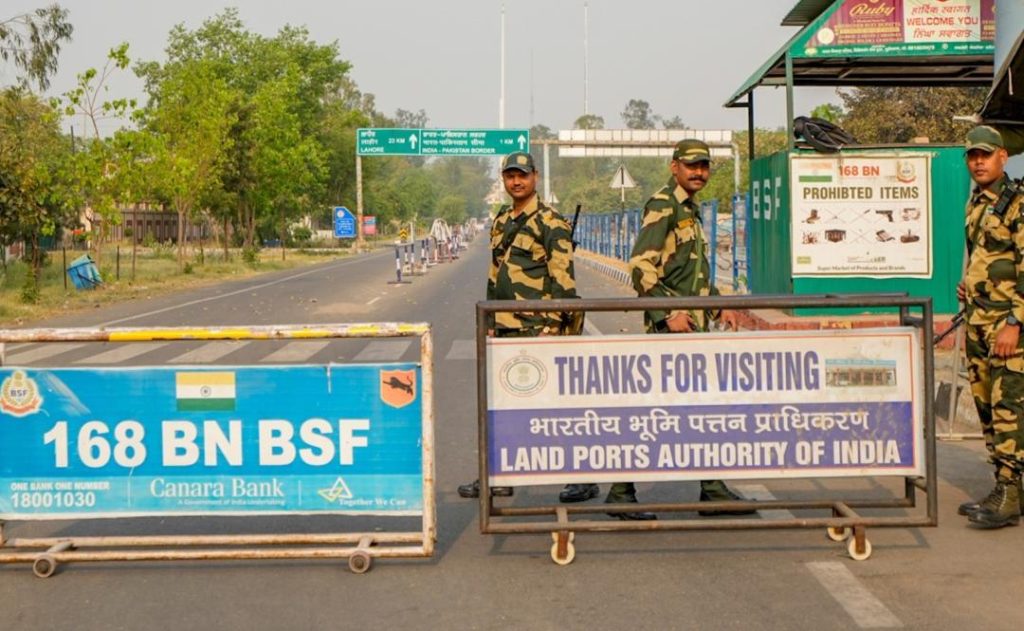
Attari-Wagah Border between India & Pakistan Completely Closed
In a shocking turn of events, the Attari-Wagah border between India and Pakistan has been completely closed, according to a report by PTI on Thursday. This means that no person from either side was able to cross over to the other side on Thursday.
The closure of the border comes after Pakistan decided to shut the border and stop accepting its citizens who were being deported by India. This move follows the recent Pahalgam terror attack, in which 26 tourists were killed.
The Pahalgam terror attack was a devastating incident that sent shockwaves across the country. The attack, which was carried out by Pakistan-based terrorists, resulted in the loss of 26 innocent lives. In the aftermath of the attack, the Indian government decided to deport Pakistani nationals who were found to be involved in the attack.
However, Pakistan’s decision to shut the border and stop accepting its citizens who were being deported by India has raised concerns about the implications of this move. The closure of the border has brought to a halt the usual routine of people crossing over to visit their families or conduct trade.
The Attari-Wagah border is an important crossing point between India and Pakistan, and its closure is likely to have significant economic and social implications for the region. The border is used by thousands of people every day, and its closure is likely to disrupt the daily lives of many individuals and families.
The decision to close the border is seen as a response to the Pahalgam terror attack and the subsequent deportation of Pakistani nationals by India. The attack was widely condemned by both India and Pakistan, and the closure of the border is seen as a measure to prevent further violence.
The closure of the border is also seen as a sign of escalating tensions between India and Pakistan. The two countries have a long history of conflict, and the recent closure of the border is likely to further strain relations between the two nations.
In recent months, there have been several incidents of violence and terrorism along the India-Pakistan border. The Pahalgam terror attack was the latest in a series of attacks that have been carried out by Pakistan-based terrorists.
The Indian government has been under pressure to take action against Pakistan-based terrorists, and the decision to deport Pakistani nationals is seen as a response to this pressure. The closure of the border is likely to be seen as a further measure to prevent the flow of terrorists and other individuals who pose a threat to national security.
However, the closure of the border is also likely to have significant economic and social implications for the region. The border is an important trade route, and its closure is likely to disrupt the flow of goods and services between the two countries.
The closure of the border is also likely to affect the daily lives of many individuals and families who depend on the border for their livelihood. The border is used by thousands of people every day, and its closure is likely to cause significant inconvenience and hardship.
In conclusion, the closure of the Attari-Wagah border between India and Pakistan is a significant development that is likely to have far-reaching implications for the region. The decision to close the border is seen as a response to the Pahalgam terror attack and the subsequent deportation of Pakistani nationals by India. The closure of the border is likely to disrupt the daily lives of many individuals and families, and its implications are likely to be felt for some time to come.






